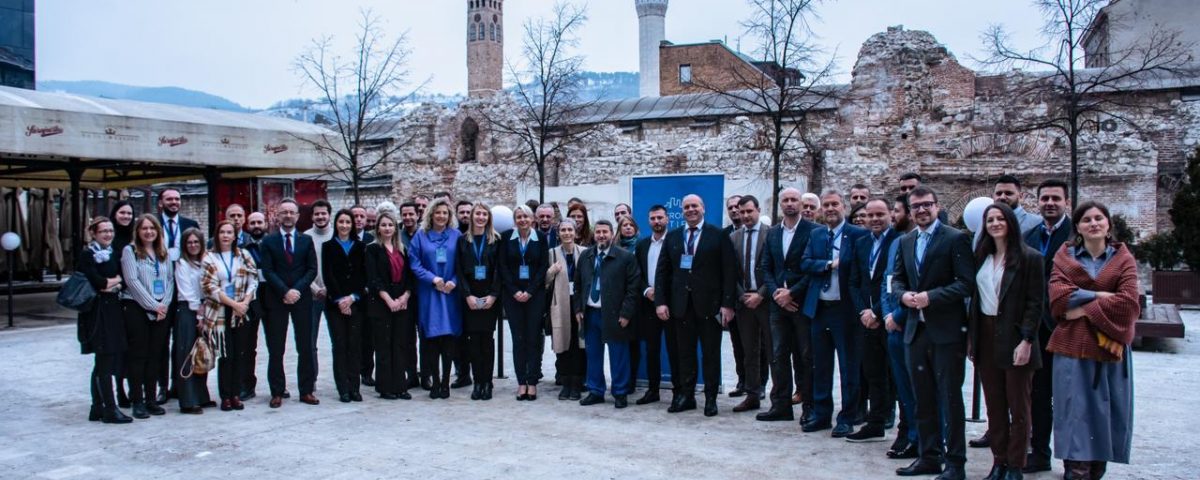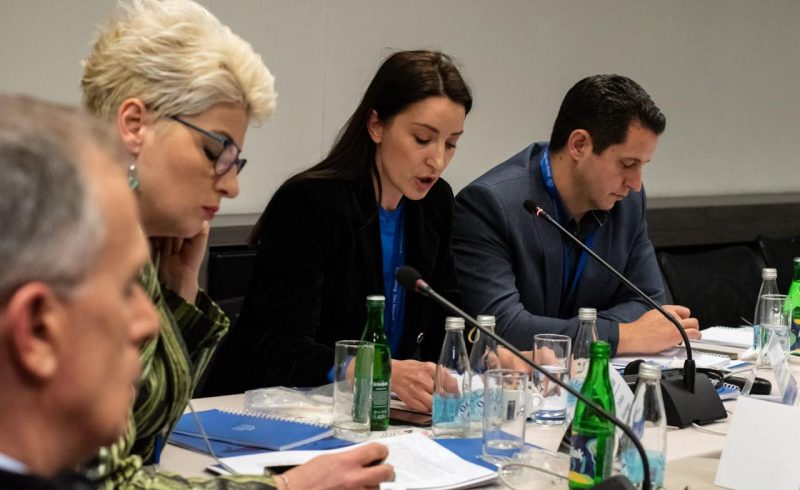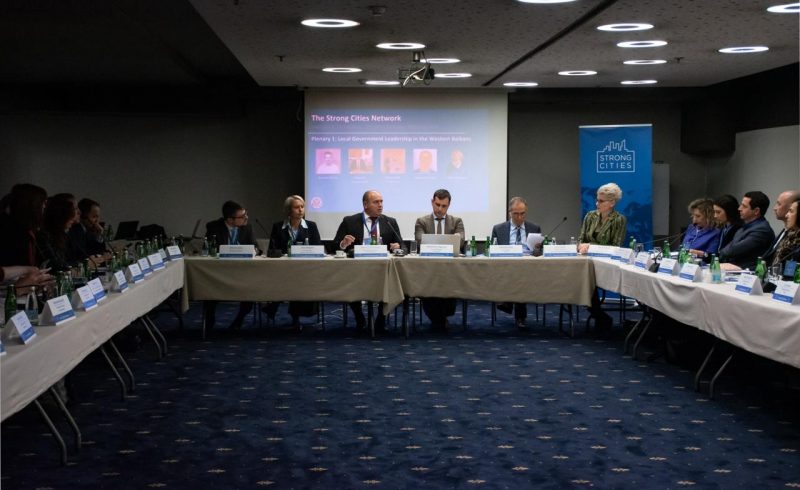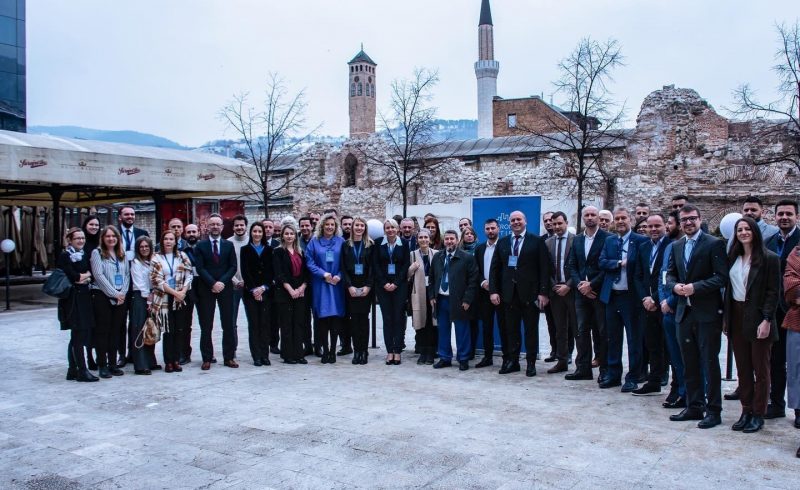Publisher: Cve.gov.al 20/02/2023
The CVE Center in the Strong Cities network program, Sarajevo, Bosnia & Herzegovina organized by the “Western Balkans Regional Network”

Deputy Minister Kuko and Director of the CVE center Meidani at the conference “Engagement of young people to build a sustainable community”
20/02/2023
Bulgaria/Prevention and fight against radicalization in the Balkans, Southern & Eastern Europe: Holistic approach implemented within the HOPE program.
24/02/2023The CVE Center in the Strong Cities network program, Sarajevo, Bosnia & Herzegovina organized by the "Western Balkans Regional Network
On February 8th and 9th , 2023, a regional workshop was organized by the Regional Network of the Western Balkans related to the issues of preventing and opposing radicalism and violent extremism at the local, regional and further global approach was organized in Sarajevo.
In the first session of this workshop, it has been discussed the leadership of cities and mayors regarding the prevention of the phenomenon of radicalism and violent extremism. Speeches were held by the mayors of municipalities of several cities such as Kumanova (North Macedonia), Danilovgrad (Montenegro), Nis (Serbia), Sarajevo (Bosnia & Herzegovina) and Albania, represented by the Mayor of Shkodër Municipality, Mr. Fatbardh Sheqi.
Following the discussions in this workshop, there was discussed about radicalism and extremism at the local level with special attention to the perspectives of local government officials. Special importance in this session was given to the actors involved who will reflect on the regional mapping of the Strong Cities network, related to specific violence, and needs according to preventive priorities. The applicability of mapping in different contexts in the region, including urban centers and rural communities, was also discussed. After the interpretation of the issues at the regional level, the discussions are extended in the next session on how the regional network of strong cities will be adapted at the global level.
In this workshop, participants discussed topics including: existing extremism prevention and relevant peer-to-peer learning opportunities for local authorities, including mayors and other local leaders; opportunities for expanding contextualized and participatory approaches to public safety and resistance to extremism, violence and related threats by engaging local government and local public services; the types of experiences, challenges and good practices that the Regional Network should prioritize as it facilitates exchanges between the cities and other local authorities in each country and region, including meetings, workshops and thematic or regional working groups; which topics should be prioritized; how to ensure that the needs of different types of local authorities are being met or with which local government actors should prioritize its engagement at the Regional Network. After these discussions, the participants identified the training and capacity building needs for sustainable cities that the Regional Network should prioritize, as well as the most appropriate modalities for the realization or facilitation of these activities, which practitioners/sectors should be prioritized, which existing programs, including those led or supported by the EU and OSCE, can be used, what new tools/curriculum are needed, which organizations are best placed to design and/or implement them; how to best utilize the Regional Strong Cities Network for program development and facilitation.
National cooperation and the raising of local voices who will research and identify how the regional network for the Western Balkans can ensure that the voices of local leaders are more consistently reflected in national, regional and global prevention, as well as the creation of related policies and discussions for program development, has been another important topic of this organization. The CVE center represented by Ms. Fatilda Smajlaj, has presented the CVE Center’s contribution and experience in dealing with these issues and has guaranteed her involvement in every initiative related to countering radicalism and violent extremism. Among other things, it considered how the Regional Network could facilitate the continuous sharing of lessons from tested multi-stakeholder cooperation models led by cities across the region.
The discussion and agreement on the engagement and strengthening of the youth has not been left behind, which will lead to the facilitation of measures to reduce the feelings of young people related to detachment and mistrust towards local government institutions, which may constitute an obstacle to access of multi-actors and the whole of society towards the prevention of radicalism and extremism which is globally recognized as good practice.
The Coordinating Center for Countering Violent Extremism as well as other organizers and participants agreed to consider how to ensure coherence and coordination between the growing number of counter-extremism and hate initiatives, as well as related multilateral ones across the region, including the Western Balkans Regional Network.




